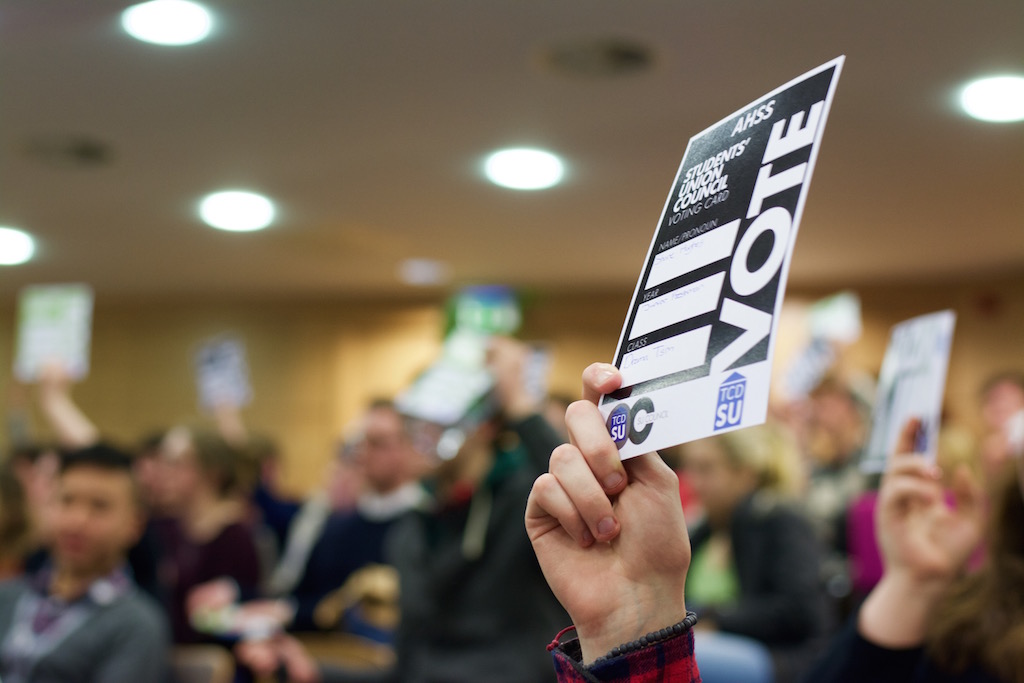A survey conducted by Trinity College Dublin Students’ Union (TCDSU) has revealed that the union’s commercial services are the most used out of any services, while The University Times has been rated as the union’s highest-quality service.
Almost half of those surveyed said they used commercial services – which include entertainments, the TCDSU’s shops and the SU Cafe – regularly or very regularly. This was followed by interaction with The University Times, with 40 per cent using the service regularly or very regularly.
The survey, which was completed by 542 students, also found that the union’s communications section was the arm of the union that is second best in terms of student interaction. This includes the readership of The University Times, as well as other communications structures within the union.
In response to a question about the priority of the union’s services in the future, students ranked The University Times the lowest, giving it a priority score of 2 out of 7. This was closely followed by representative functions – class representatives and College committees – which got a priority score of just 3.
Student welfare campaigns were considered the number-one priority for improvement in the future, receiving a 5.35 priority score out of 7. This was followed closely by College education campaigns and student services.
Even though Trinity’s students ranked The University Times very highly for quality and usage, the union is likely to focus on this low-priority ranking as it grapples with financial pressures.
The results were delivered by Hugh Sullivan, a management consultant and a former TCDSU education officer, who will use the survey results to inform the union’s next strategic plan.
Around 67 per cent of students rated the union’s commercial services as high or very high. Nearly 60 per cent of students rated the quality of The University Times as high or very high.
When those who ranked the quality of the services as very low or low are taken into consideration, both the commercial services and The University Times received a similar overall ranking.
The least frequented services by students were “student services”. This includes the welfare officer and academic advisory services, as well as external campaigns such as higher education funding and campaigns on social issues.
Welfare, which encompasses sexual and mental health and consent workshops, was ranked as having the highest future priority. Sullivan pointed out that this means that while students may not actually avail of these services as much as others, welfare facilities are nonetheless highly valued.
Student services were also ranked as the lowest-quality services that the union provides, with educational services and commercial services ranking slightly higher on the list.
Accommodation was identified by a third of participants as the most pressing concern for Trinity students. This was followed by environmental concerns, the lack of student spaces on campus, and health and welfare concerns.
One of the biggest criticisms of the union was “cliquishness”, followed by its lack of diversity in activities and events. Other perceived problems affecting the union include financial management, an overemphasis on campaigning for social issues, and a lack of focus on Trinity-specific issues.
There was a notable contradiction between the criticism of an overemphasis on national issues and the demand for more affordable accommodation, another problem often identified as a national one.
Sullivan suggested that the union should engage in both student-focused and national issues, arguing that engaging in national campaigns will positively affect students.
The survey is unlikely to be considered particularly significant for the union, with the results of its strategic plan set to be brought to next council. The strategic plan will outline the union’s goals until 2023.
The provisional plan includes three core pillars, aiming to improve to promote and protect access to and the quality of the Trinity experience, to fight for societal interests and wellbeing of members, and to build a “sustainable and robust” TCDSU.
The finalised version of this strategic plan will be presented to at the last council of the year, which will take place on March 26th. It will be presented to the board of trustees in April.
TCDSU’s first strategic plan was devised by then-President Domhnall McGlacken Byrne and was approved by council in 2015. The plan set out the union’s direction for up until 2018, with 20 measurable goals.







